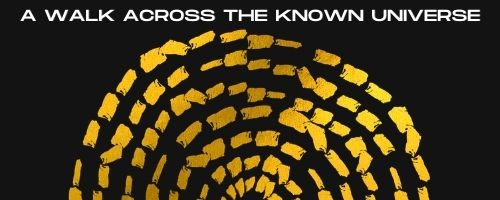Episode 104
Welcome To The Eighth Circle Of Hell: Inferno, Canto XVIII, Lines 1 - 21
We've passed the midway point in INFERNO. Halfway done! Yet we only have two circles left. We're about to enter the biggest circle of them all, the one that takes up thirty-eight percent of the INFERNO: the circle of fraud.
Join me, Mark Scarbrough, as we slow-walk through Dante's masterpiece, COMEDY. We've come to the most modern of all the sins: fraud. A nasty bit of inhuman humanity. And perhaps Dante's greatest achievement in INFERNO. It's an imaginative expanse that puts to bed his forefather poets and establishes our poet as the writer in full control of this work.
Oh, and there are some nasty, gross bits of hellish punishment, too.
Here are the segments of this episode of the podcast WALKING WITH DANTE:
[00:56] My English translation of the passage: INFERNO, Canto XVIII, lines 1 - 21. If you'd like to read along, you can find this passage on my website, markscarbrough.com, under the "Walking With Dante" header.
[02:34] A bit about the name of the 8th circle: "malebolge" or "evil pouches." We haven't had a named circle until now, other than to call a circle by its sin. We didn't enter "weird worlds" when we came among the violent. But here, Dante coins a word to explain the 8th circle. "Pouches"--a word that connects us back to the money bags that the usurers wear around their necks.
[04:09] Let's look back at Virgil's map of lower hell in Canto XI, particularly the bits about fraud starting at line 52. Virgil both predicts and fails to predict what we're about to encounter. But he does clue us in that it's a vast landscape with lots and lots of the damned.
[08:12] The opening of Canto XVIII is clean, almost spare. It seems as if it's an "objective" viewpoint. Yet the poetry is also full of Latinate expressions and even some Latin itself. Dante is setting us up for what's to come: a strange mix of classical formalism and vulgar Florentine.
[14:03] The 8th circle is actually an inverted (or perverted) castle. And it's a spiderweb when you look down on it, a notion Dante has set us up for by mentioning Arachne in the last canto.
[18:00] Many critics are at some pains to describe this as a natural landscape. I think it's more worthwhile to see it as a constructed one.
[21:07] The final tercet (or three lines): we're back in the plot! Which brings us to an interesting problem. Nine of the thirteen cantos of the 8th circle will begin with proems, prefatory poetry. Does that mean the poem as a whole is becoming more self-conscious? Or more fraudulent?


